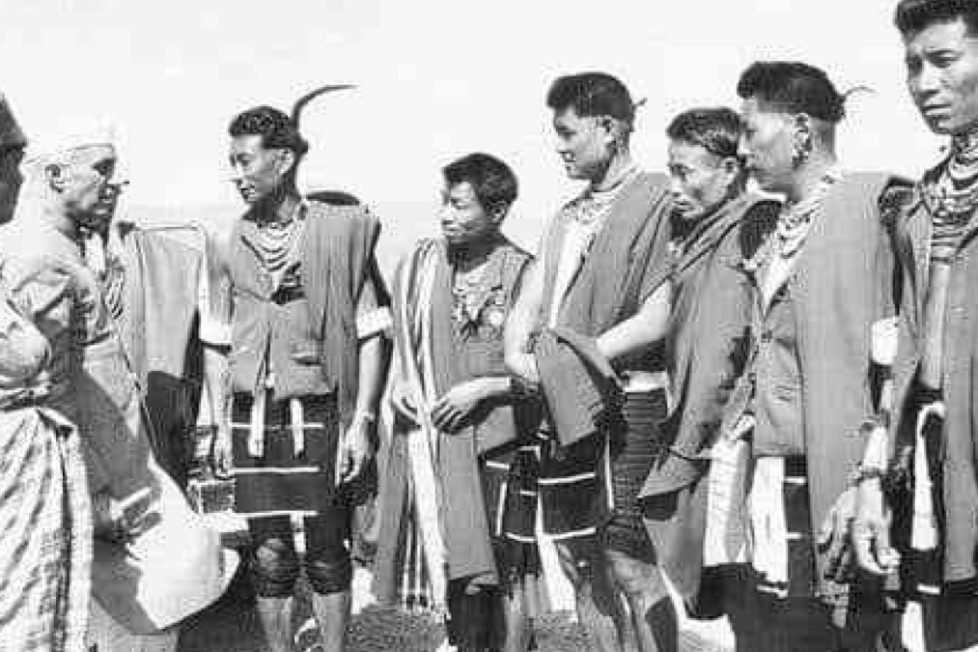Adding to Assam’s difficulties to ignoring the north-east: Here is what Nehru left behind


Nehru’s blunderous choices ultimately caused Assam’s population to change negatively as a result of the inflow of Muslims from East Bengal. Taking this into consideration, any nationalist who cared about the fate of the native people, their possessions, their well-being, and their culture in Assam would have made sure that the Muslims’ migrations from East Bengal were stopped, at the very least after independence, with the power at our disposal. Unfortunately, demographic invasion persisted even after independence because the government continued to act like an ostrich.
After independence, votes became crucial for Congress and Nehru because Muslim immigration increased their voter base. Why not, therefore, ignore it, even if Assamese and Northeasterners suffer as a result?
All of this occurred despite the vehement opposition of several local Congress leaders, including Gopinath Bordoloi and Medhi, who believed that such vote-bank politics were inadvertently anti-national. The following are excerpts from an article titled “How Bangladeshi Muslims exterminated the Assamese in their own land.”
“After partition, the Assamese people expected that there would not be
any further trans-migration of Muslims from East Pakistan to their new
political territory. Muslim populations in Assam considerably decreased
in 1947 partly due to inclusion of Sylhet in Pakistan and also return of
sizeable number of earlier immigrants to their original land due to fear
of backlash. But the situation changed, when Mainul Haq Chaudhary,
the Private Secretary of Jinnah and also a prominent leader of the youth
wing of AIML till partition, joined Congress party along with the
supporters of Pakistan en-mass. On the eve of partition, he was shaky
whether to opt for Pakistan or stay back in India. He was however told
by Jinnah, ‘wait for ten years, I shall present Assam on a silver plate to
you’. Jinnah died in 1948 but the Congress Party fulfilled his promise
by inducting Chaudhary in the Cabinet of Congress Government led by
Gopi Nath Bordoloi. It is often alleged that Chaudhary stayed back in
Assam on the advice of Jinnah and other Pakistani leaders to help the
immigrants from Pakistan for their settlement in Assam…
“Against the evil geo-political design of Pakistan, which scared the
Assamese middle class of the threat to their marginalisation in their
own land, Government of India never had any organised plan or definite
policy. Nehru-Liaquat Pact (April 1950)… rather facilitated the Pakistan
Government to accelerate infiltration… It is said that the Congress
leadership applauded the increase of Muslim immigrants as a God sent
opportunity to consolidate the ‘Muslim vote banks’ and accordingly
ruled Assam without any break for thirty years…
“Moinul Huq Choudhury, who later became a Minister in the Union
Cabinet of Indira Gandhi Government and former President of India
Fakharuddin Ali Ahmad were widely known for being instrumental in
the settlement of illegal Muslim immigrants. Late B.K. Nehru, the
Governor of Assam between 1968 and 1973, condemned the infiltration
as vote bank politics by the Congress.”
The serious issue of migration was brought up by Congress leaders Bordoloi, Medhi, Bimala Prasad Chaliha, and others, but they did not receive the proper backing from Nehru and the Congress leadership at the Centre. Kuldip Nayar stated in “Beyond the Lines”:
“The state subsequently paid the price…when illegal migration from the
then East Pakistan reduced the Assamese-speaking population in Assam
to a minority… It was not Chaliha who initiated the issue of illegal
migration but his senior in the Congress, Fakhruddin Ali Ahmad, who
rose to be India’s president. In fact, the entire party was guilty. Its
simplistic solution was to win elections in Assam by allowing would-be
settlers from across the border into the state thus creating a vote bank…
[Gobind Ballabh]Pant [the then Home Minister in Nehru’s cabinet]
knew that large number of people were coming across the border. After
all, his party had connived at the migration since independence…”
Bimala Prasad Chaliha, the chief minister of Assam, began an aggressive campaign to drive out the immigrants in the early 1960s. Nehru, however, wished for him to be more lenient and even to halt deportations.
Because of flawed understandings of the issues, a skewed worldview, a flawed understanding of the interests of national security, and flawed policies and solutions that resulted from these, Assam and the Northeast’s difficulties may be traced back to the Nehruvian era. Due to vote-bank politics, Nehru permitted immigration from East Pakistan.
To appease specific ethnic groups, Nehru’s policy of dividing Assam into a number of smaller states has really backfired. One, they are over 220 different ethnic groups, making them extremely diverse.
How long can one continue to divide? Two, it gave rise to polarising identity politics. Others have also increased their call for dissolution. Three, such little states cannot support themselves economically.
DISCLAIMER: The author is solely responsible for the views expressed in this article. The author carries the responsibility for citing and/or licensing of images utilized within the text.
